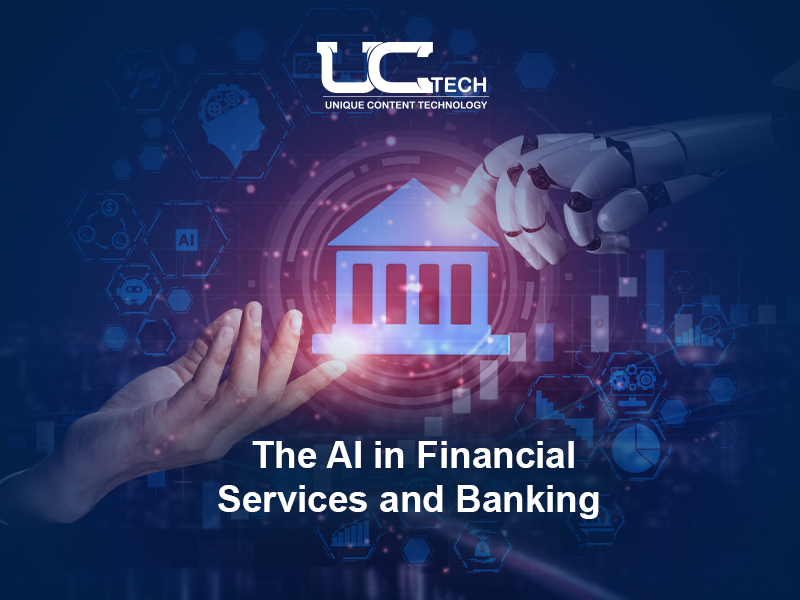What if banks could anticipate market shifts, stop fraud before it happens, and serve customers faster than ever before?
These are no longer futuristic dreams, they are current realities made possible through artificial intelligence (AI).
Banks across the Gulf are using AI in credit scoring and customer evaluation to make faster, more accurate lending decisions while reducing financial risk.
This strategic approach is boosting business efficiency with smart tech, enabling institutions to streamline operations and serve customers more effectively.
Across Saudi Arabia and the Gulf region, financial institutions are adopting AI technologies to revolutionize operations, enhance security, and drive smarter decisions.
For decision-makers in the public and private sectors, understanding how AI can transform financial services is no longer optional, it’s essential.
AI’s Role in Transforming Financial Services
Artificial intelligence in the banking sector is more than a trend, it’s a strategic shift.
From AI-powered chatbots that provide instant customer service to advanced analytics engines that analyze terabytes of financial data, AI is enabling financial institutions to operate with unprecedented speed, accuracy, and insight.
Today, AI applications in the banking sector are integrated into core services such as compliance monitoring, customer onboarding, and portfolio management.
How AI Helps Detect Fraud and Prevent Financial Crimes
One of the most powerful uses of AI is fraud detection. How AI is used to detect financial fraud involves machine learning models that continuously analyze transaction patterns, flagging anomalies in real time.
In Saudi banks, for example, AI systems can detect unusual activity within seconds, preventing unauthorized transfers or identity theft.
These capabilities are especially vital in today’s landscape of increasing cyber threats.
Enhancing Banking Speed and Customer Satisfaction Using AI
AI is also reshaping the customer experience.
Improving customer experience in banks through AI includes intelligent chatbots that resolve inquiries 24/7, predictive analytics that tailor product recommendations, and biometric verification tools that simplify identity checks.
Saudi banks are leveraging these tools to offer smarter, faster, and more secure customer interactions. Ultimately, this fosters trust and long-term customer loyalty.
Market Forecasting and Financial Analysis Powered by AI
Financial forecasting is traditionally complex, requiring vast amounts of data and expert judgment.
With market forecasting using AI technologies, financial institutions can now automate these processes, generating accurate predictions about currency trends, interest rates, or economic shifts.
This enhances the strategic planning and investment decisions of financial organizations.
Read about: How AI Enhances Customer Experience in Retail
Managing Credit Risk and Approvals with Artificial Intelligence
Using AI in credit scoring and customer evaluation allows banks to assess loan applicants more precisely.
AI algorithms consider not just financial history but also behavioral data, spending patterns, and even mobile phone usage.
This leads to fairer decisions, reduces defaults, and accelerates approval processes. For financial leaders in the region, it’s a competitive edge.
Case Studies: Artificial Intelligence in Saudi Banks
Several banks in the Kingdom have taken bold steps in digital transformation. AI fintech in Saudi banks is being deployed in areas such as anti-money laundering (AML), automated loan underwriting, and robo-advisory platforms.
For example, a leading Saudi bank implemented AI-powered automation in banking operations to streamline its internal processes, reducing turnaround times by over 40%.
Another institution utilized enterprise data analytics services and top data analytics tools to enhance credit risk monitoring and offer real-time insights to its compliance team.
These initiatives demonstrate how enhancing banking efficiency through artificial intelligence is a practical goal already being achieved.
Smart Banking with AI-Powered Platforms
Today’s banking is not just digital; it’s intelligent. Smart banking with AI-powered platforms means offering proactive services like investment advice, automated savings plans, or real-time budget coaching—all powered by machine learning.
Banks in the Gulf are adopting AI solutions for businesses and AI consulting for enterprises to create these value-added services.
Additionally, AI integrates with advanced business intelligence tools, helping financial institutions align their operations with market dynamics, consumer behavior, and regulatory requirements.
Combined with predictive analytics for business decisions, banks can anticipate customer needs and respond with personalized offerings.
Aligning with National Digital Transformation Goals
Saudi Arabia’s Vision 2030 emphasizes digital transformation for companies, and AI plays a critical role in achieving this.
Through AI applications in Saudi Arabia, banks are modernizing legacy systems, adopting modern knowledge management systems, and enhancing compliance with smart automation.
These efforts contribute to national goals of innovation, cybersecurity, and economic diversification.
The integration of AI in financial services is no longer a competitive advantage, it’s a business necessity.
Whether it’s through AI-powered automation in banking operations, AI solutions for financial risk management, or smart banking with AI-powered platforms, the benefits are clear.
As more institutions in the Gulf region embrace AI, the financial landscape is poised to become faster, safer, and smarter.
To learn how your organization can adopt cutting-edge AI technologies and data analytics tools, Contact UContent , your trusted partner in digital transformation.
FAQ
Q: Is AI safe to use in critical financial operations?
Yes. AI models undergo rigorous testing and auditing to ensure security, accuracy, and compliance with regulations.
Q: What are the biggest challenges in AI adoption for banks?
Integration with legacy systems, data quality issues, and lack of skilled talent are among the most common challenges.
Q: Do customers trust AI-driven services?
When transparency and security are prioritized, customers increasingly embrace AI tools for their convenience and efficiency.

